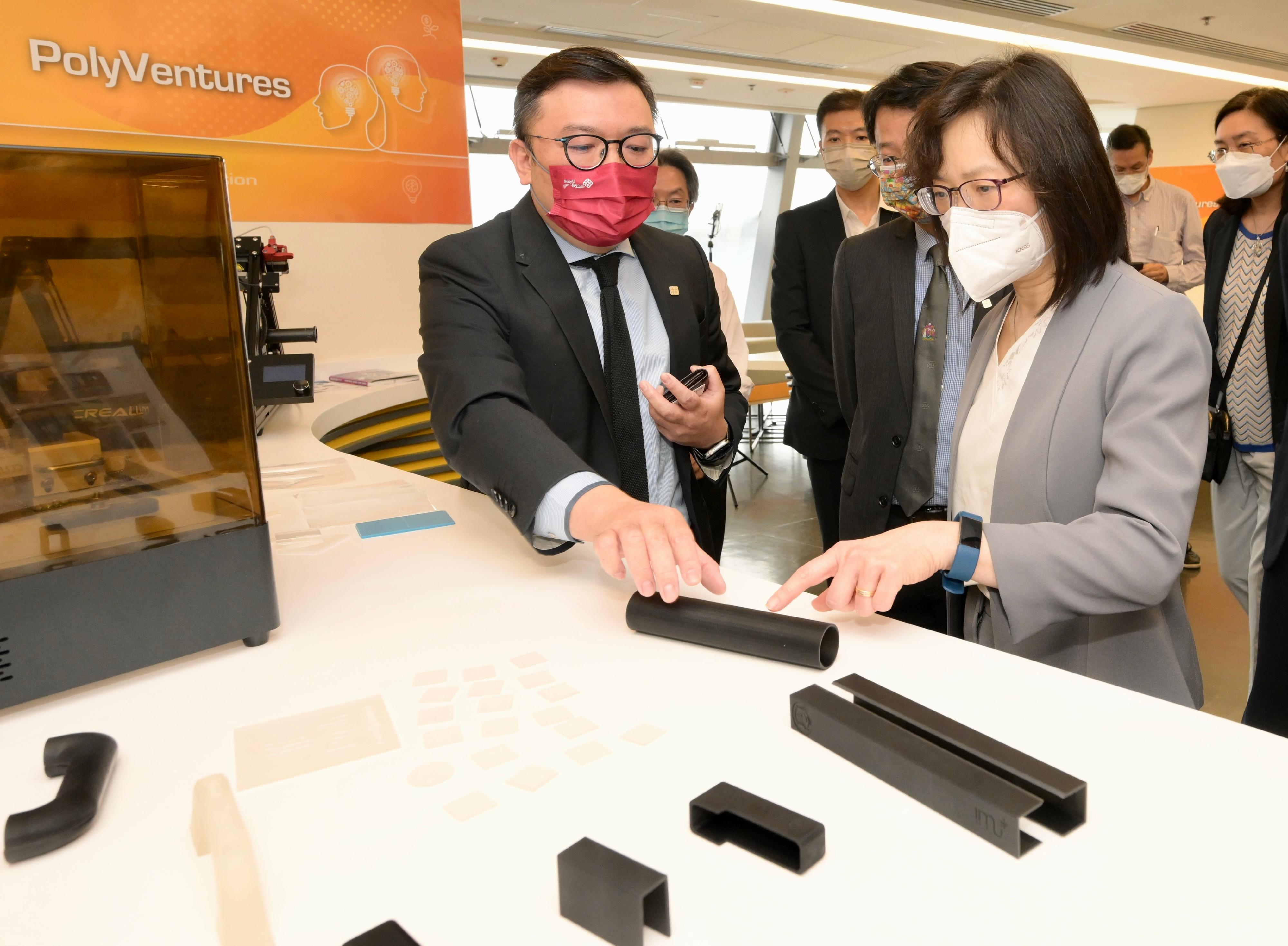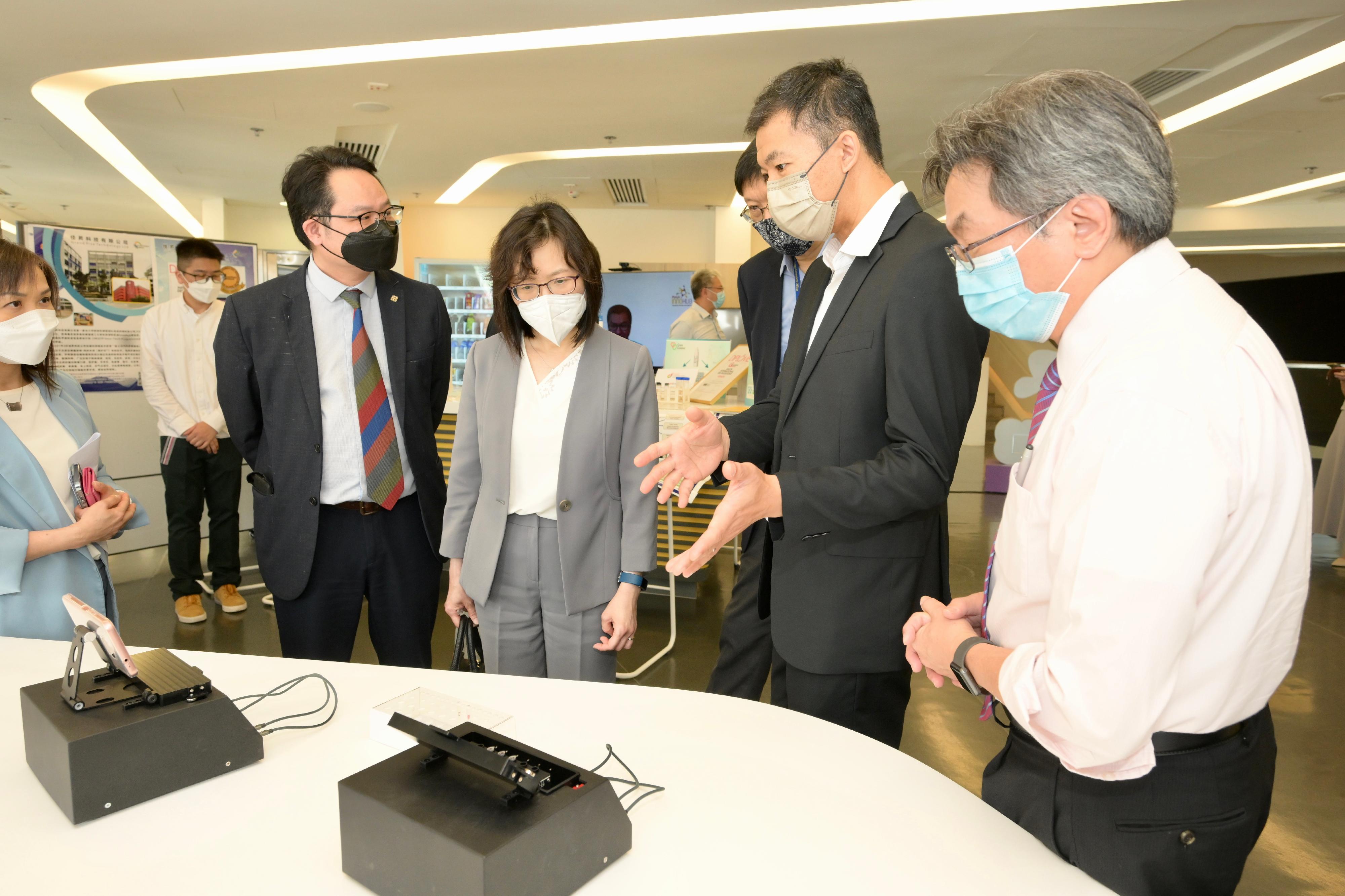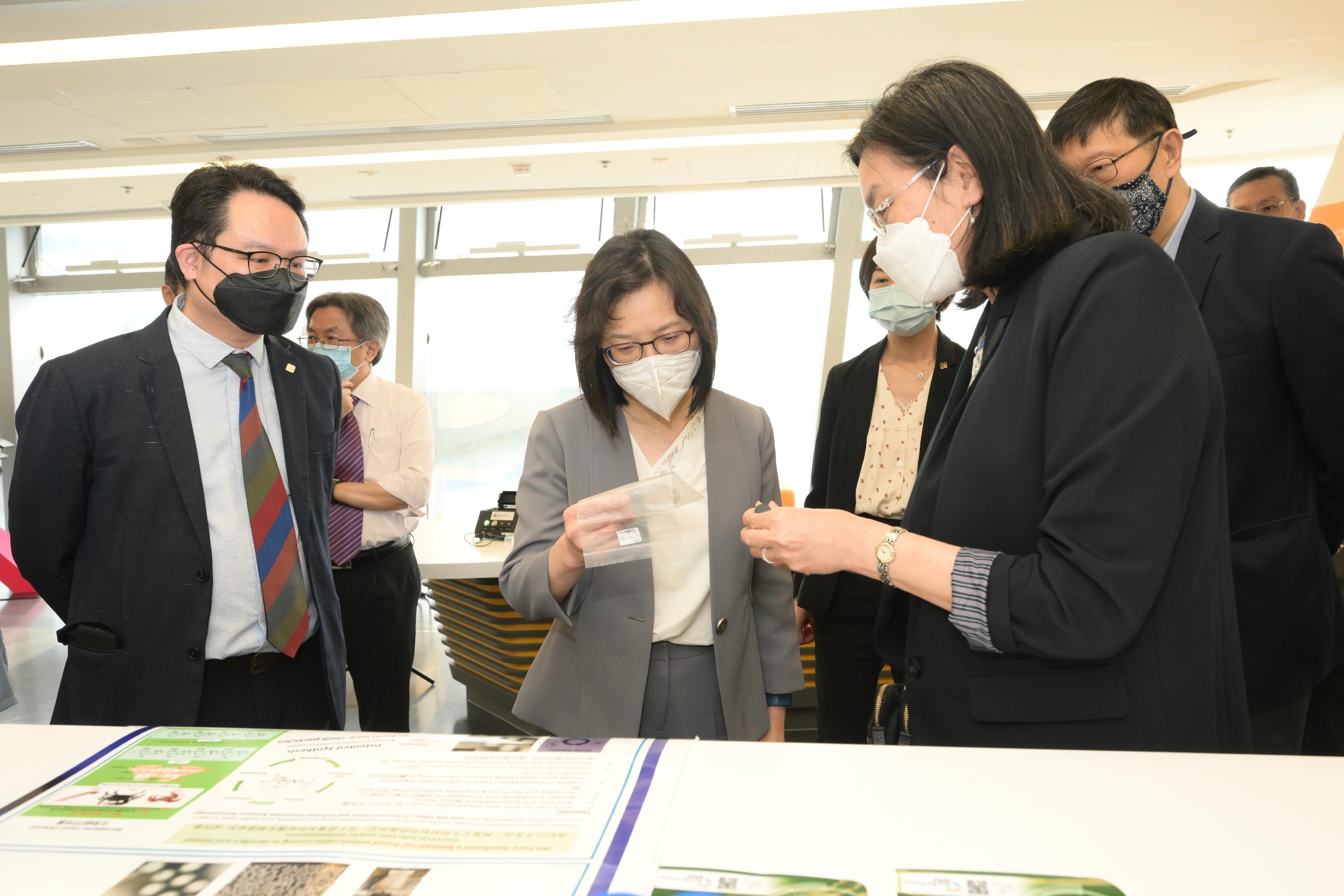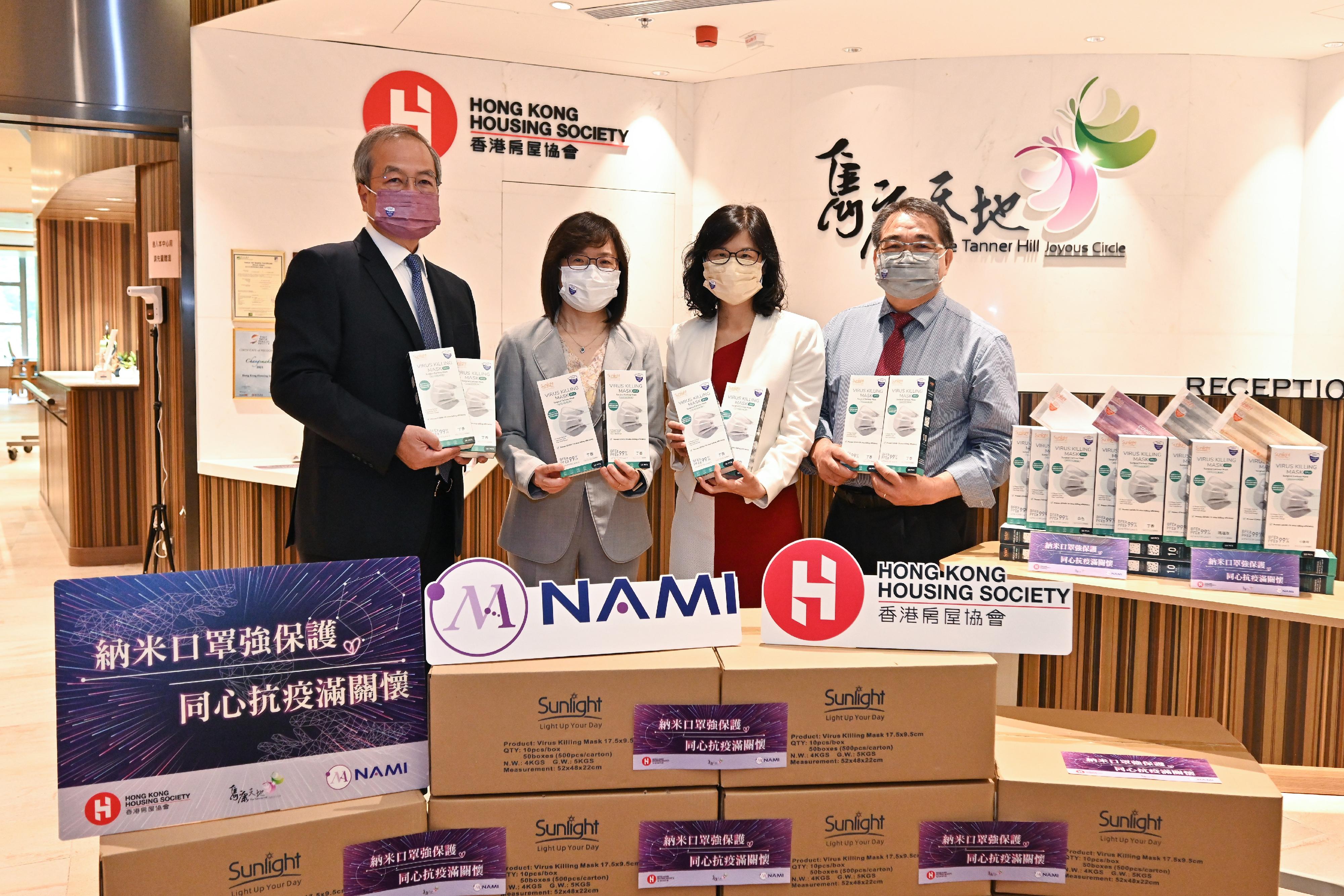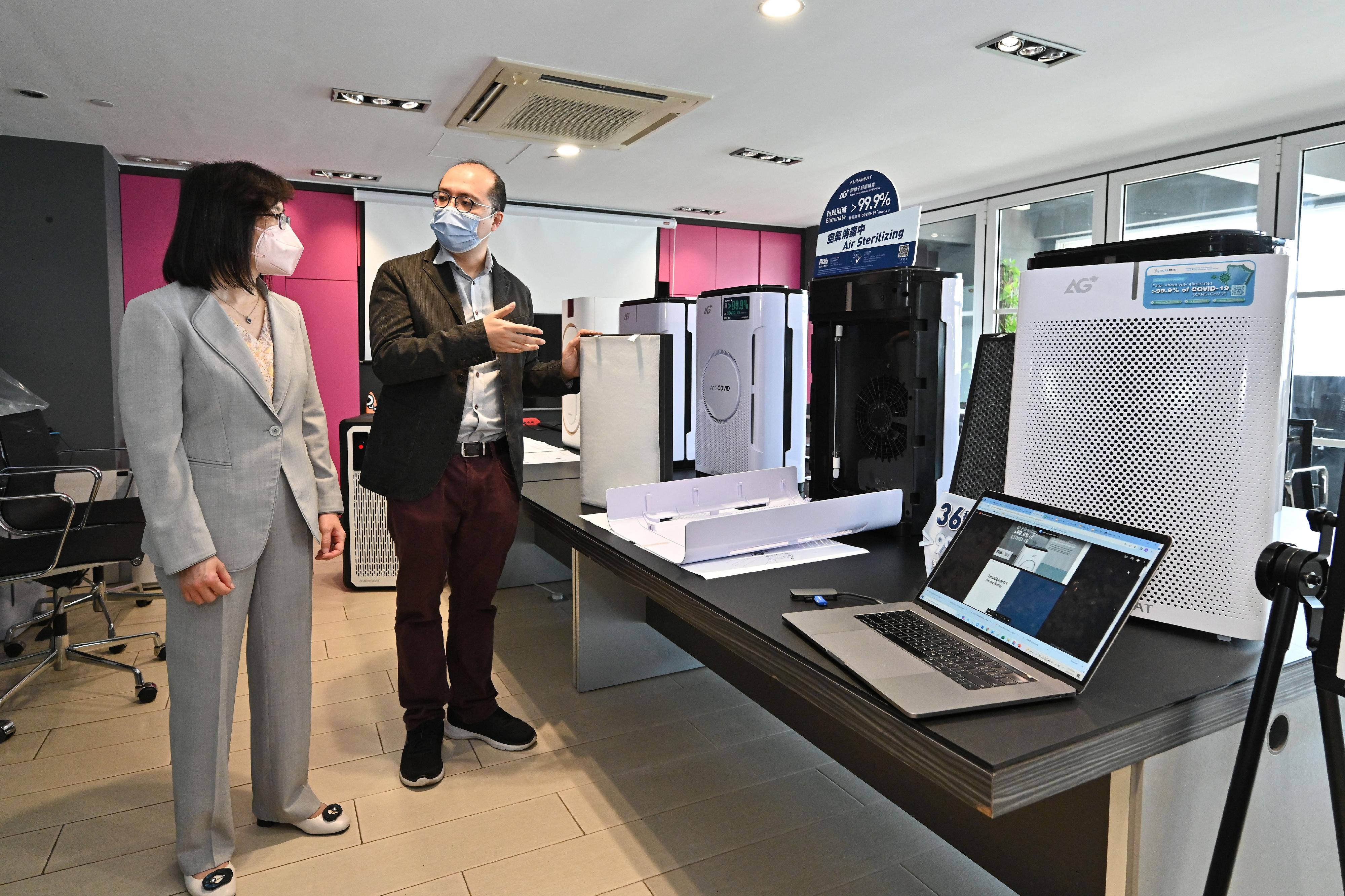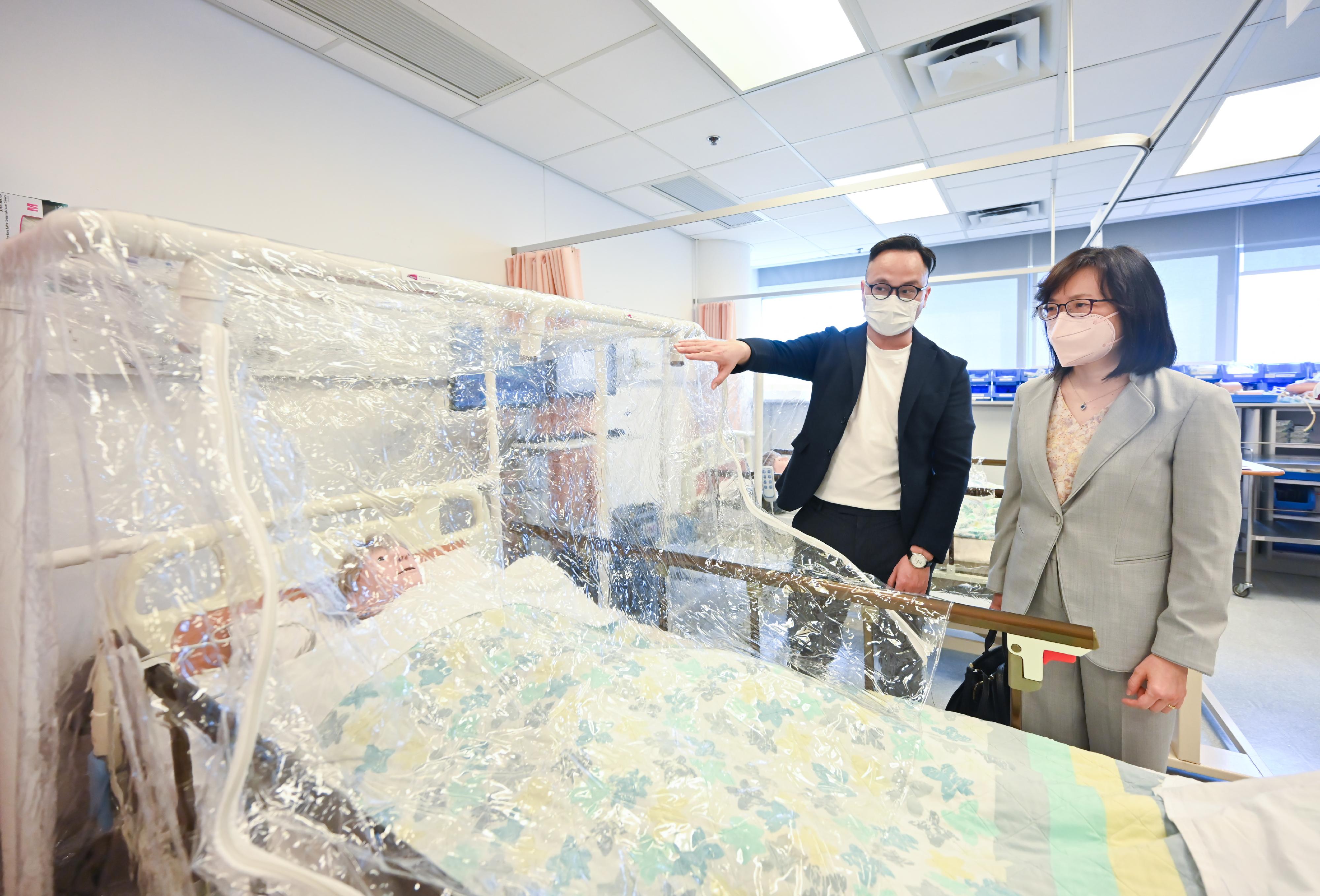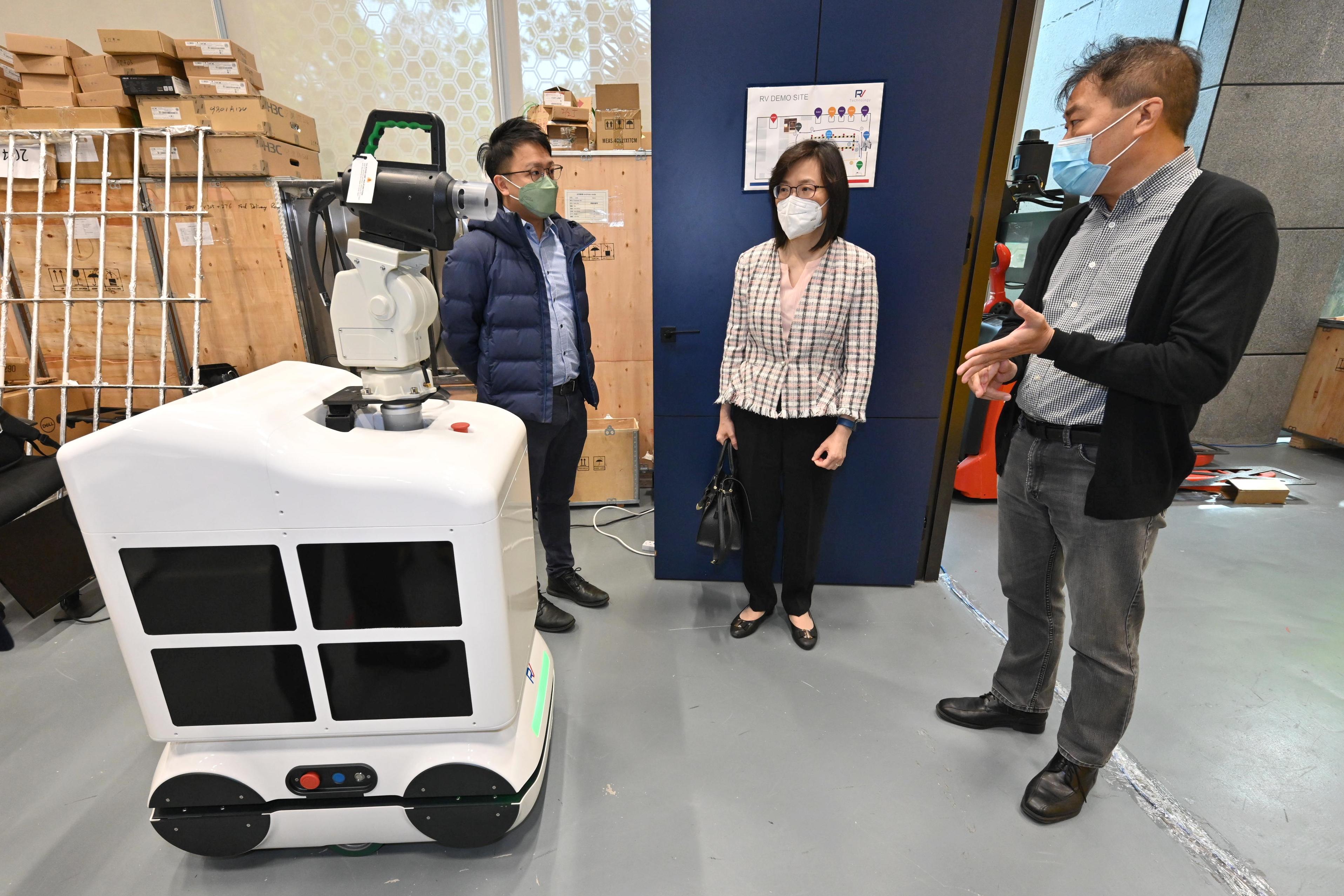Commissioner for Innovation and Technology views local anti-epidemic technology products (with photos)
The Commissioner for Innovation and Technology, Ms Rebecca Pun, visited universities and start-ups to meet with research teams to understand the research and development (R&D) and application of local anti-epidemic innovation and technology (I&T) products on April 27 and 29 and today (May 3).
Accompanied by the Executive Vice President of the Hong Kong Polytechnic University (PolyU), Dr Miranda Lou, Ms Pun on April 27 visited the PolyU InnoHub, which is a co-working space for start-ups, and met three PolyU research teams to understand their innovations and applications. The innovations developed by the three research teams are related to anti-epidemic use. The first invention, CareCoatex, is a non-toxic and eco-friendly antibacterial and antiviral coating that can kill 99 per cent of common bacteria and viruses. The coating is effective for up to six months and can be applied to various types of equipment for disinfection, contamination control and anti-epidemic protection. The second invention is a novel COVID-19-killing 3D printing material that can be used to produce equipment that is touched frequently such as door handles and elevator buttons to reduce the chance of virus transmission. This R&D outcome is funded by the special call for projects to combat the COVID-19 epidemic under the Public Sector Trial Scheme (PSTS) of the Innovation and Technology Commission (ITC). The third invention is a portable nucleic acid testing device for COVID-19 that can test both human and environmental samples with 100 per cent sensitivity and specificity, and can facilitate personal and environmental hygiene management. According to PolyU, CareCoatex and the 3D printing material have been commercialised and adopted by different organisations and enterprises.
In addition, the R&D Centres under the ITC have also been actively developing products and solutions to prevent the spread of the virus, so that technology can be integrated into the lives of the public to combat the epidemic in convenient and effective ways. Accompanied by the Chief Executive Officer of the Nano and Advanced Materials Institute (NAMI), Mr Daniel Yu, Ms Pun visited the Hong Kong Housing Society's elderly residence the Tanner Hill in North Point on April 29. NAMI donated a batch of around 20 000 face masks to the elderly and front-line staff of the residential home. These upgraded masks, which were manufactured by NAMI's industry partner using a breakthrough nanofibre technology recently developed by NAMI, can kill coronaviruses and greatly enhance protection.
Ms Pun also viewed on April 29 and May 3 the following three anti-epidemic solutions funded by the special call for projects under the PSTS:
(1) Aurabeat Technology Limited developed an air purification device that has a variety of high-end disinfection technologies integrated, namely ionic silver, photocatalytic oxidation, UV light disinfection and plasma sterilisation. The photocatalytic oxidation technology can generate hydroxyl radicals, which can help decompose and eliminate bacteria, viruses and organic dust particles in the air. This air purification device has been certified by a third party testing organisation to be effective in reducing airborne COVID-19. The device had been tested by the Electrical and Mechanical Services Department at its offices and workshops at various locations, and gained a satisfactory trial result on air purification. The product has since then been successfully launched in the market and adopted in shopping malls, offices and residential care homes, and can also be purchased by the public for residential use;
(2) The City University of Hong Kong developed a fast-track vented enclosure system for COVID-19 patients in hospitals. The system makes use of a ventilated hood to create a negative pressure environment for individual COVID-19 patients to protect non-COVID-19 patients and medical staff from the risk of airborne contagion. The contaminated air extracted from the hood will be cleaned by passage through a high-efficiency particulate air filter. Experimental results showed that 100 per cent aerosol removal efficiency could be achieved by the enclosure system. A clinical trial of this system is being conducted at the Clinical Simulation Centre of the School of Nursing of the University of Hong Kong. The system has also been clinically tested in the 24-hour Outpatient and Emergency Department of Gleneagles Hospital Hong Kong since February this year. The test data has shown that the system can effectively minimise the risk of cross-infection in the emergency room. As the system design is simple and can be quickly set up, it is believed that the system may be widely adopted in venues such as hospitals and residential care homes in the future; and
(3) RV Automation Technology Company Limited developed a disinfection mobile robot for indoor environments. The main disinfection functions of the robot include multi-angle spraying and misting, covering all indoor locations including furniture surfaces and corners. The robot has also been equipped with automatic obstacle avoidance and navigation functions. The disinfection mobile robot has been tested in the Hong Kong Science Park (HKSP) and the person in charge of the trial in the HKSP was satisfied with the performance and effectiveness of the robots. The disinfection mobile robot developed by RV Automation Technology Company Limited has already been commercialised in Hong Kong and has been adopted in locations such as hospitals and government departments. The company will launch robots with different functions targeting the needs of different organisations and enterprises in the future.
Ms Pun said, "The ITC will continue to provide funding to organisations in the field of R&D and application of technologies to support the application and commercialisation of their R&D outcomes, and at the same time support the community's continued efforts in combating the epidemic so that the general public may resume normal life as soon as possible."
The ITC launched a special call under the PSTS for combating COVID-19 in March 2020 and approved 63 projects in the same year. The responses from the 57 participating local public sector organisations were very positive, providing trial venues and actual operating environments to the applicant organisations with a view to facilitating the early implementation of R&D outcomes. The list of the approved projects under the special call for the PSTS is available on the website of the ITF (www.itf.gov.hk/en/funding-programmes/facilitating-technology/psts/psts-covid-19/index.html).
